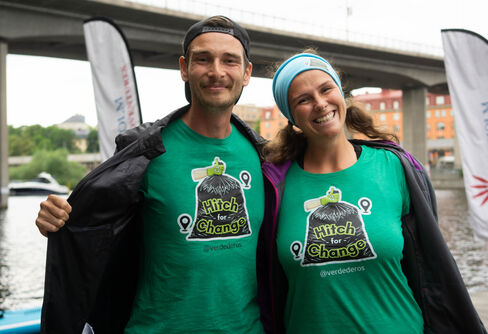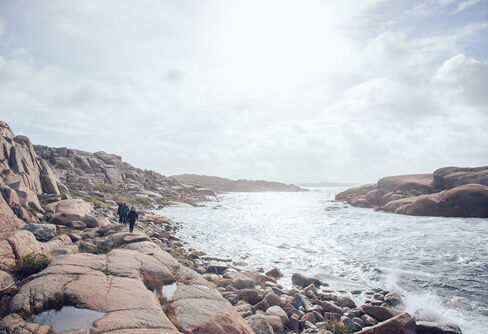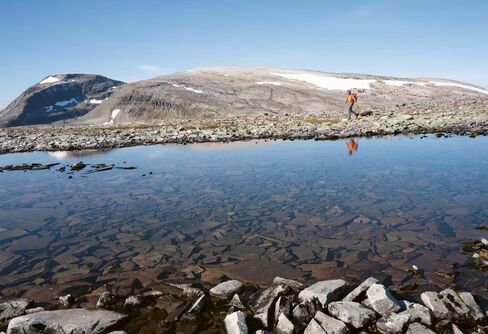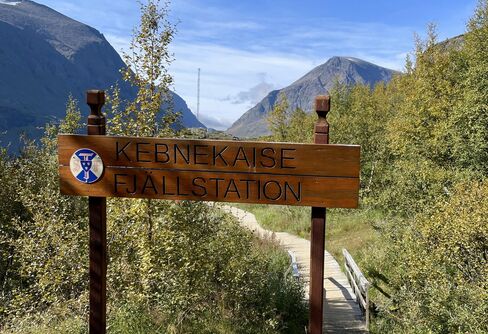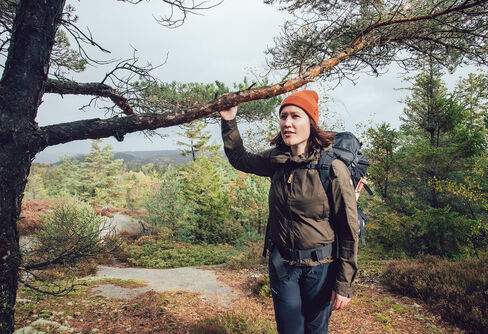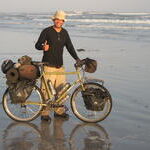[Ansvarsfull turism för att rädda rovdjur]
WWF uppmanar till ansvarsfull turism för att hjälpa och skydda varg, björn och lodjur i Europa.
Av: Kinna
London: A new report launched today (9 May 2000) by WWF World Wide Fund For Nature highlights the pivotal role the British and European tourism industry can play in helping to secure the future of Europe's last great carnivores including wolves, brown bears and lynx.
Brown bears in Western Europe are more endangered than the giant panda and are on the brink of extinction, particularly in EU countries. Without urgent action, many of Europe's large carnivores - such as the Iberian lynx (the world's most endangered cat) - could be extinct in Europe within the next 10 years.1
The new report, Tourism & Carnivores: The Challenge Ahead, examines ways in which European tour operators can capitalise on the potentially huge business opportunity offered by the "European jungles" which are home to some of the world's rarest and most spectacular creatures whilst helping to improve carnivore conservation.
Taking five case studies in Romania, Spain, Poland, Italy and France, the report assesses the benefits of responsible tourism to the tourism industry, to local communities and to carnivore conservation.
"The presence of large carnivores can be a valuable asset to the tourism industry: they can, for example, be used as an income generator, a symbol of wilderness, a source of local and national pride, or as an educational resource," Paul Toyne, WWF's Campaign for Europe's Carnivores.
The report shows that these opportunities are mostly unexplored but WWF believes that, in specific European locations, responsible tourism can help to support the conservation of large carnivores and their habitats, and the sustainable development of the communities in which they live.
"Responsible tourism can fulfil the triple bottom line of sustainability bringing social, economic and environmental benefits for the tourism industry, local communities and conservation. It's a win, win, win situation." Robert Napier, Chief Executive, WWF-UK.
A practical example of this can be seen in the Carpathian Mountains in Transylvania which has the largest population of wolves, bears and lynx in any European country excluding Russia. This is the last place in Europe where high numbers of people and large predators co-exist: bears are nightly visitors to the city of Brasov and wolves scavenge for food within the city boundaries.
Tourism is the world's largest industry providing 200 million jobs worldwide and generating billions of dollars in 1999 international tourism receipts totalled
WWF is calling for:
the European tourism industry to adopt the Romanian model as a blueprint for action throughout Europe: stimulating interest by promoting carnivore tourism, raising awareness of carnivore conservation, and generating income for local communities in a bid to protect Europe's last remaining large carnivores;
all European governments to ensure that responsible tourism is incorporated into their national species action plans which they are required to prepare under the Bern Convention;
tour operators and tourists to adopt the new WWF Code of Conduct for carnivore tourism.
"Carnivore tourism offers a new and exciting product for the tourism industry and for tourists. For tour operators, it is a way of diversifying an existing product or marketing a new one; for tourists it is an opportunity to enjoy the habitat of large carnivores whilst helping to protect these threatened animals." Robert Napier, Chief Executive, WWF-UK
Brown bears in Western Europe are more endangered than the giant panda and are on the brink of extinction, particularly in EU countries. Without urgent action, many of Europe's large carnivores - such as the Iberian lynx (the world's most endangered cat) - could be extinct in Europe within the next 10 years.1
The new report, Tourism & Carnivores: The Challenge Ahead, examines ways in which European tour operators can capitalise on the potentially huge business opportunity offered by the "European jungles" which are home to some of the world's rarest and most spectacular creatures whilst helping to improve carnivore conservation.
Taking five case studies in Romania, Spain, Poland, Italy and France, the report assesses the benefits of responsible tourism to the tourism industry, to local communities and to carnivore conservation.
"The presence of large carnivores can be a valuable asset to the tourism industry: they can, for example, be used as an income generator, a symbol of wilderness, a source of local and national pride, or as an educational resource," Paul Toyne, WWF's Campaign for Europe's Carnivores.
The report shows that these opportunities are mostly unexplored but WWF believes that, in specific European locations, responsible tourism can help to support the conservation of large carnivores and their habitats, and the sustainable development of the communities in which they live.
"Responsible tourism can fulfil the triple bottom line of sustainability bringing social, economic and environmental benefits for the tourism industry, local communities and conservation. It's a win, win, win situation." Robert Napier, Chief Executive, WWF-UK.
A practical example of this can be seen in the Carpathian Mountains in Transylvania which has the largest population of wolves, bears and lynx in any European country excluding Russia. This is the last place in Europe where high numbers of people and large predators co-exist: bears are nightly visitors to the city of Brasov and wolves scavenge for food within the city boundaries.
Tourism is the world's largest industry providing 200 million jobs worldwide and generating billions of dollars in 1999 international tourism receipts totalled
WWF is calling for:
the European tourism industry to adopt the Romanian model as a blueprint for action throughout Europe: stimulating interest by promoting carnivore tourism, raising awareness of carnivore conservation, and generating income for local communities in a bid to protect Europe's last remaining large carnivores;
all European governments to ensure that responsible tourism is incorporated into their national species action plans which they are required to prepare under the Bern Convention;
tour operators and tourists to adopt the new WWF Code of Conduct for carnivore tourism.
"Carnivore tourism offers a new and exciting product for the tourism industry and for tourists. For tour operators, it is a way of diversifying an existing product or marketing a new one; for tourists it is an opportunity to enjoy the habitat of large carnivores whilst helping to protect these threatened animals." Robert Napier, Chief Executive, WWF-UK
Källa: Världsnaturfonden WWF
Läs mer
Forumdiskussioner
- Miljöpåverkan Klimatförändringar - vi lever i det
- Vilda djur Gissa bajset
- Vilda djur Rovfågel
- Miljöpåverkan Tråd för klimatdebatt
- Allmänt om friluftsliv Elda i Norge
- Allmänt om friluftsliv När går solen upp och ned?
- Allmänt om friluftsliv Övre Pasvik nationalpark - plogat in på vintern?
- Allmänt om friluftsliv Hällmålningarna i Gaskavre
